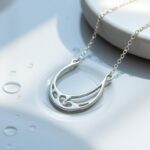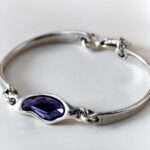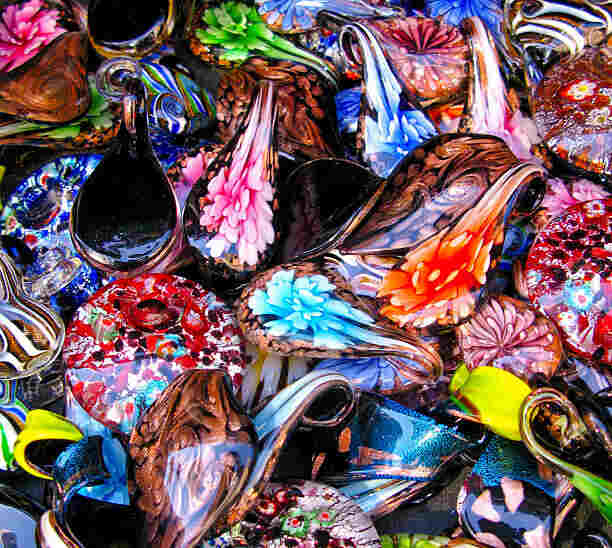Water Resistant Jewelry: Discover the Best Options to Wear in Water
Water resistant jewelry can withstand water exposure, such as stainless steel and solid gold pieces. These materials are corrosion-resistant and do not easily tarnish.
Jewelry that doesn’t get ruined by water is good for keeping your shiny things looking new, even if they get wet a lot. Things like stainless steel and real gold are good because they don’t get rusty or change color when they touch water.If you want a necklace that you can wear all the time without worrying about it in the shower, or a bracelet that won’t get messed up when you sweat, it’s smart to know about water-safe jewelry. Tough metals like titanium and platinum are also smart picks for keeping your bling sparkly and in good shape, even after getting wet.
1. Types Of Water Resistant Jewelry
When it comes to water-resistant jewelry, it’s essential to choose the right materials that can withstand water exposure without losing their beauty or durability. Here are some popular types of water-resistant jewelry:

1.1 Solid Gold Jewelry
Real gold jewelry is like a classic beauty that lasts forever. Made from special metals, these pieces are not just pretty but also a smart buy. Real gold doesn’t get ruined by water, so it’s perfect for wearing all the time, even in the shower or pool.
Unlike jewelry that’s just covered in gold, real gold stuff is made all the way through with gold, which makes it stronger and more worth the money. You can get it in different types, like 14k or 18k, and it’s used for all kinds of fancy things you can wear, like small necklaces, bracelets, big rings, and earrings. If you want your jewelry box to look fancy, real gold is a great pick that’s always in style.
1.2 Stainless Steel Jewelry
Stainless steel jewelry is really good at not getting rusty or losing its shine, even when it gets wet a lot. It’s a great pick for people who are always on the move and need their jewelry to handle water like a champ. This kind of jewelry is tough and looks cool, with a shiny, silver style that works for everyday looks or fancy events.
1.3 Platinum Jewelry
1.4 Titanium Jewelry
Titanium jewelry is very strong and light. It’s great for people who want something modern and different. It doesn’t rust or lose its shine easily, so you can wear it all the time. It’s also good for people with sensitive skin because it doesn’t cause allergies. If you’re looking for a stylish ring or bracelet, titanium is a good choice. It’s both tough and fancy, making it perfect for anyone who cares about looking good and having jewelry that lasts.
1.5 Silicone Jewelry
Silicone jewelry is colorful and can be worn with many outfits. It’s very bendy and strong, so it’s good for making cool and trendy things that don’t break easily. You can wear silicone jewelry while working out, swimming, or at work because it keeps its look and doesn’t get damaged. It’s also waterproof, so you don’t have to take it off. Silicone is safe for people who get allergies from other jewelry and feels nice to wear. You can find all kinds of silicone jewelry, like fun bracelets or pretty rings, that are both stylish and long-lasting.
2. Best Practices For Water Resistant Jewelry Care
Water resistant jewelry refers to pieces that can withstand exposure to water without getting damaged. Materials like solid gold and stainless steel are commonly used to create water resistant jewelries, ensuring that you can wear them without worry, even in wet conditions.
It is important to choose the right type of metal for any piercings to prevent any issues during the healing process.
2.1 Avoiding Harsh Chemicals: Avoid strong chemicals that can damage water-resistant jewelry, such as chlorine or harsh cleaning agents.
2.2 Regular Maintenance And Cleaning: Perform regular cleaning using mild soap and water to keep your jewelry looking its best.
3. Common Myths And Misconceptions
Water resistant jewelry is often misunderstood, with many believing that it is completely impervious to water. However, while it can withstand some exposure to water, it is not completely waterproof. Stainless steel and gold are good choices for water-resistant jewelry, but it is important to note that they may still experience some damage over time.
3.1 Distinguishing Between Waterproof And Water Resistant
When it comes to water-resistant jewelry, there is often confusion about the difference between “waterproof” and “water-resistant.” Water-resistant jewelry can withstand exposure to water to some extent, but it may not be completely impervious to it. On the other hand, waterproof jewelry is designed to be fully unaffected by water. It’s essential to understand this distinction to ensure the proper care and maintenance of your jewelry.
3.2 Understanding Tarnish Resistant Metals
Understanding tarnish-resistant metals is crucial when considering water-resistant jewelry. Tarnish-resistant metals such as stainless steel, titanium, and platinum are known for their ability to withstand tarnishing, corrosion, and discoloration, making them excellent choices for water-resistant jewelry. When properly cared for, these metals can maintain their luster even when exposed to water.
3.3 Conclusion And Recommendations
For water-resistant jewelry, consider stainless steel or gold as they are both corrosion-resistant and ideal for everyday wear. These materials can withstand water exposure, making them perfect for showering or bathing without damage. Upgrade your accessories with durable pieces that offer both style and functionality.
In Conclusion
When it comes to water-resistant jewelry, it’s essential to choose durable materials like stainless steel or solid gold, which can withstand exposure to water without tarnishing. Consider these options for long-lasting, low-maintenance jewelry that can accompany you through various daily activities, including showering or swimming.
Enjoy the convenience and peace of mind of water-resistant jewelry that doesn’t compromise on style or quality.
FAQ On Water Resistant Jewelry
Q1. What Jewelry Can Withstand Water?
Ans: Jewelry that can withstand water includes solid gold and stainless steel pieces, which are corrosion-resistant and do not easily rust. Being aware of the metal type in ear piercings is important for prolonged water exposure during the healing process.
Q2. What Is Water Resistant Jewelry?
Ans: Water resistant jewelry is designed to withstand water exposure without damage, making it suitable for everyday wear. It is typically made from materials like stainless steel or gold, which are corrosion-resistant and do not easily tarnish or rust when in contact with water.
Q3. What Jewelry Doesn’t Tarnish In Water?
Ans: Solid metals such as solid gold, titanium, platinum, non-plated stainless steel, and non-plated sterling silver do not tarnish in water.
Q4. What Jewelry Can You Not Get Wet?
Ans: Certain jewelry pieces should not be exposed to water, such as those made from plated metals, costume jewelry, and those with gemstones that are glued in place. It is best to remove these pieces before swimming, showering, or any water-related activities to prevent damage.













